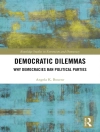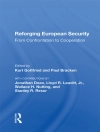We live in an age of democracy. Very few people challenge the virtues of ‘government by the people’, yet politicians and commentators are fond of decrying the ‘crisis of democracy’. How do these views square up?
This book provides the answer by surveying the philosophical history of democracy and its critics and by analysing empirical data about citizen participation in Britain and other developed democracies.
In addition to analysis of major political thinkers like Plato, Machiavelli and J.S. Mill, the book analyses how modern technology has influenced democracy.
Among the issues discussed in the book are why people vote and what determines their decisions, what prompts citizen involvement in riots and demonstrations, whether spin doctors and designer politics pose a threat to democracy and the influence of mass media on our political behaviour.
More than merely providing an overview, the book also presents original analyses of timely issues such as referendums and the consequences of postal voting.
An essential book for students of politics, history and media studies, this study puts the debate about democracy into perspective and offers a solid grounding for future discussions.
Table des matières
Introduction
A note on the data
PART I: THEORETICAL ASPECTS OF CITIZEN POLITICS
1. Understanding citizen politics: a methodological overview
2. Participation and democracy from the Greeks to our times
PART II: EMPIRICAL FOUNDATIONS OF CITIZEN POLITICS
3. An empirical approach to citizen politics
4. Bottom-up politics: riots and extra-parliamentary politics
5. Top-down initiated citizen politics: E-democracy, citizen juries and designer politics
6. Citizens as voters
7. Excursus: The power of the representatives
PART III: CASE STUDIES IN CITIZEN DEMOCRACY
8. Decisions to hold referendums in the UK
9. Voting by the people: the referendums on the European constitution
10. Absentee voting in a comparative perspective
11. Quo vadis democracy?
References
A propos de l’auteur
Professor Matt Qvortrup is Chair of Politics at The Robert Gordon University, Aberdeen and an adjunct Professor of Political Science at the University of New South Wales, Sydney












